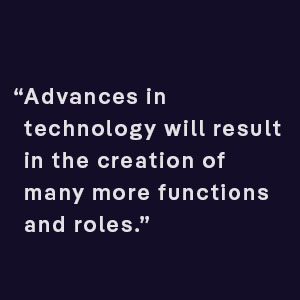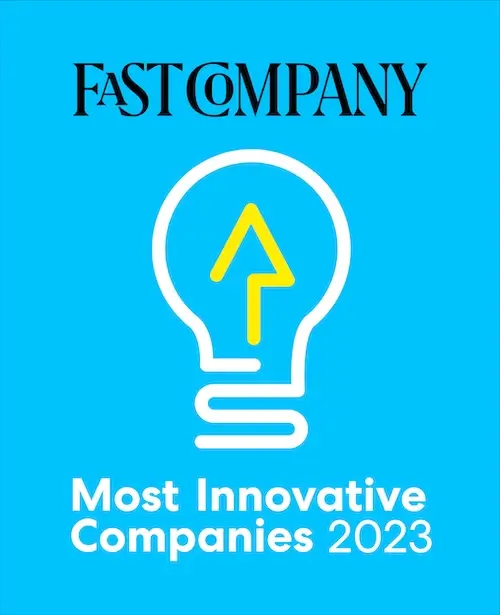“We are marching inexorably toward firmly connecting all humans and all machines into a global matrix,” Kevin Kelly explains in his 2017 book, The Inevitable: Understanding the 12 Technological Forces That Will Shape Our Future. “This matrix is not an artifact, but a process. Our new ‘supernetwork’ is a standing wave of change that steadily spills forward new arrangements of our needs and desires.”
What artificial intelligence (AI), in particular, does is alter the very nature of human and machine relationships. It increases productivity and effectiveness, as well as workers’ well-being. It also allows general counsels (GCs) and other legal professionals — more notably — to spend time on higher-value work, like counseling and advising on risk, navigating rather complex problems, and, yes, even learning entirely new concepts and skills.
In other words, the most powerful AI for legal in the world helps lawyers to work less like machines, themselves, and spend more time on ‘human’-centered functions.
Technology and AI for legal has affected lawyers’ interactions
Although AI-based legal technology isn’t displacing lawyers — as some wrongly believe — it’s certainly changing the ways corporate counsel operates. In their 2015 paper, “Can Robots Be Lawyers? Computers, Lawyers, and the Practice of Law,” Dana Remus and Frank Levy write that the only way to fully understand — and accurately evaluate — the ramifications of legal tech is to “engage with the ways in which computers perform various lawyering tasks differently than humans.” They add that some of those differences will be amazingly beneficial, like increasing accuracy and preventing errors. That means that the ever-important job of interpreting data, formulating advice, and leading interpersonal interactions will be left to us, humans.
“Technology has affected lawyers’ interactions in ways that allow for the automation of some (routine) tasks,” Remus and Levy write. “The vast majority of a lawyer’s personal interactions, however, continue to require spontaneity, unstructured communication, and emotional intelligence.”
For instance, many law schools are just starting to provide classes and clinics on technological innovation, lawyer-client relations, and legal communication, in general.
The way AI systems perform tasks differently than humans also prompted Remus and Levy to ask this pertinent question: How might these very differences change the practice of law and how we — as lawyers, technologists, and a society — approach the norms and rules governing advances in technology?
‘AI tools do tasks at which they excel’
What’s also important to remember here is that AI is a mere component of a much larger system. What’s more, these very systems need to be created, adopted, implemented and operated by humans at the outset. (That, too, should remove any concerns that AI is displacing us, lawyers!)
As a matter of fact, since its first report on the topic in 2017, Gartner has consistently said that advances in technology will result in the creation of many more functions and roles. That sentiment is even echoed by the World Economic Forum, which estimates that 97 million people will be required for AI-related jobs by 2025. But that doesn’t reflect the jobs that AI will help produce, themselves. Today, many companies realize that the actual benefit of AI is not automating workers out of their respective positions. As noted above, the ultimate value of AI is enhancing employees’ skills, while freeing them up to perform the work that matters most to organizations.
Cognitive science researcher and philosopher Brian Cantwell Smith arguably said it best when he acknowledged that we could — and should — use AI tools to “shoulder the reckoning tasks at which they excel, and not for other tasks beyond (AI’s) capacity.”
So even if artificial intelligence never rivals human thinking, those repetitive, run-of-the-mill tasks traditionally performed by humans will soon be automated by technology. AI will do the work we have always completed but do them more efficiently and effectively. It will do the kind of work we never imagined needed to be done. More to the point, though, AI will allow us to perform those creative and strategic legal tasks — those that expand who we are, as lawyers, and allow us to become far more ‘human’ in our functions. One can’t help but think, then, that AI shouldn’t only be thought of as “artificial intelligence.” We need to think of the alternative —and more realistic — form of AI: “augmented intelligence,” in which humans use cognitive technologies to consistently improve and develop their capabilities.
If you’re interested in learning more about the rise of legal platform — built with visionary, validated AI technology — download our whitepaper today. ContractPodAi Cloud, for instance, is our highly configurable, no-code platform, which is designed for the way you work. That’s because every aspect of our AI-driven system is crafted according to the principles of modern legal design thinking. Its pre-built applications, like the best-in-class contract management system (CMS) module and customizable legal apps, help you handle and process, document, or scenario — from contracts to claims, and M&A to GDPR.
Author:

Jerry Levine
Connect with us on Linkedin










